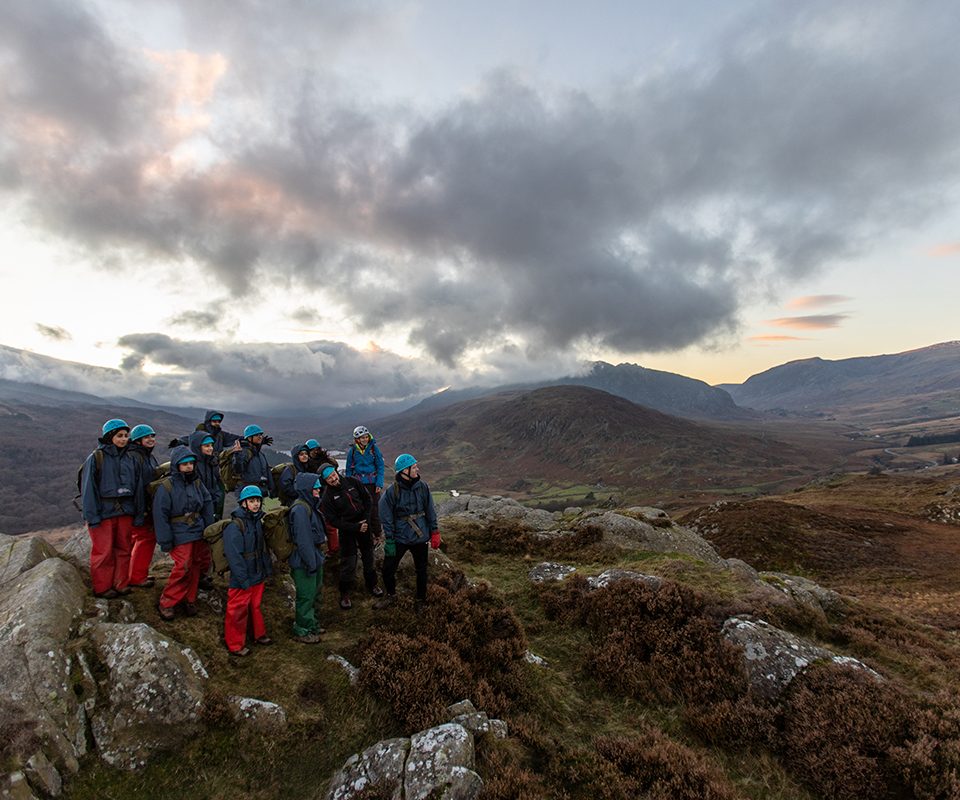Nick Rhys, one of our Senior Instructors, explains how our residentials boost resilience.
1. Wild locations
Kapow! Our locations, venues and activities all have the wow factor! Young people will be hiking in the Lake District, or the Scottish Highlands, or along the Welsh coast.
Crucially, we do this year-round with a huge variety of groups. A great example of this is how our courses begin with a dip in the lake, loch or sea! This wow factor is brilliant at inciting participants to break free of their own limits.
2. Deeper understanding
We have a sophisticated and evidence-based understanding of resilience. It means far more than just ‘plugging away’. Resilience requires effort and perseverance and imagination.
Too often, the imagination element is ignored. It is about using ideas from yourself and other people to develop strategies to help you succeed in a task. On a rock climb, it is about using all the holds in the best way. With exam revision, it is about using ideas to plan so you work in the most efficient way.
3. Immersive experiences
We differ from many other activity centres as we focus on prolonged adventures in nature, rather than short, ‘buzz activities’ on site. Whilst these briefer activities can be fun, they do not teach resilience.
We aim to be out all day, (and sometimes overnight), often linking activities to create a multi-faceted journey. For example, we might row across the lake, climb a peak and canoe back. This is a level of challenge which can only be completed successfully by showing individual and team resilience.
4. Pushing boundaries
It is one thing to show resilience in a nice warm classroom but a whole different challenge to do this on a raft half-way across a loch, or when putting up a tent in the twilight, or when kayaking back to the centre against the tide, or striving to map a tunnels system. Resilience in school feels easy after this!
This ‘stress proofing’ where people must use the learning even when things are not in their favour embeds resilience in an impactful and lasting way.
5. Long-lasting learning
The true value of a school trip is about the learning ‘sticking’ and being used back in school. At Outward Bound, the experiences happen as part of a team often alongside the visiting member of staff. Crucially, resilience is not taught in isolation. It’s part of teamwork, communication, self-esteem and wellbeing.
Having adventures with school mates and teachers gives a sense of connectedness which travels back to school. Being able to refer to these shared experiences builds rapport and wellbeing.
So there you have it, five ways our school residentials can help to build resilience in young people.
Has this inspired you? Want us to work with you to help build resilience in your pupils? Find out more and book onto our next taster course.

FREE TASTER: DEVELOPING YOUNG PEOPLE'S RESILIENCE
Find out how learning and adventure in the wild can develop your pupils' resilience, confidence and self-belief. Course available this March and April.
FREE REPORT: MENTAL HEALTH AND RESILIENCE
This report focuses on ways we can help young people build their resilience.